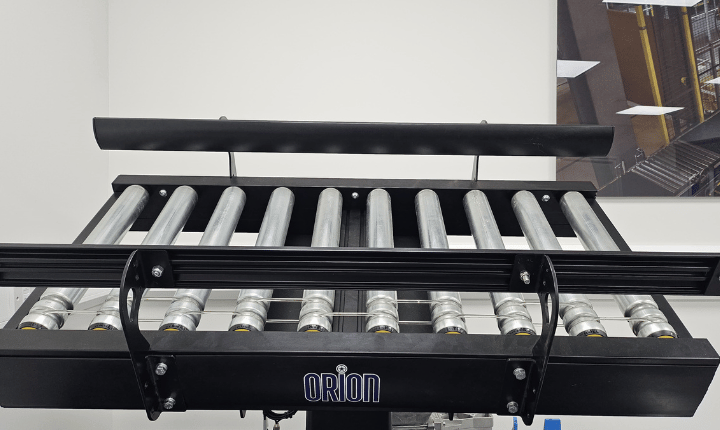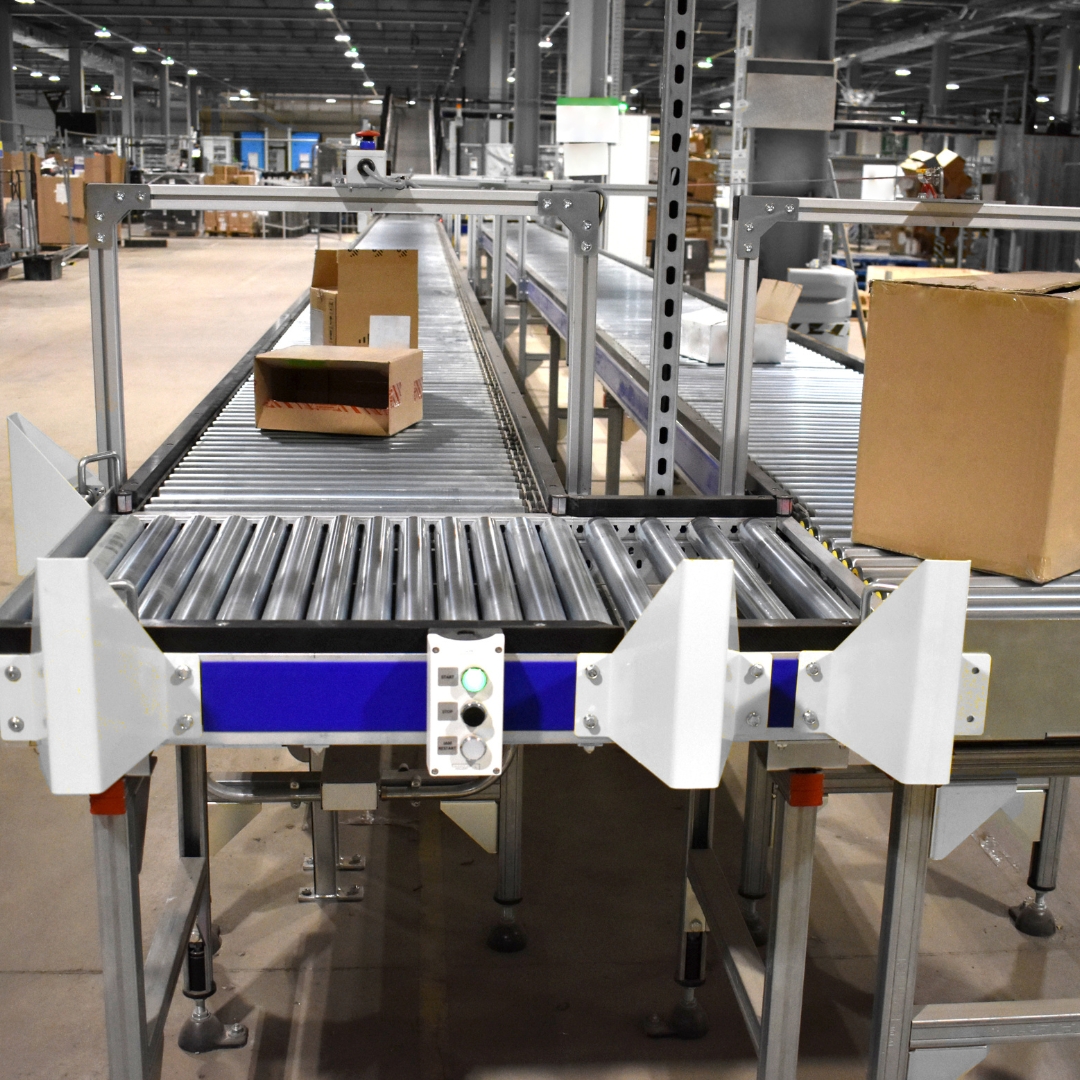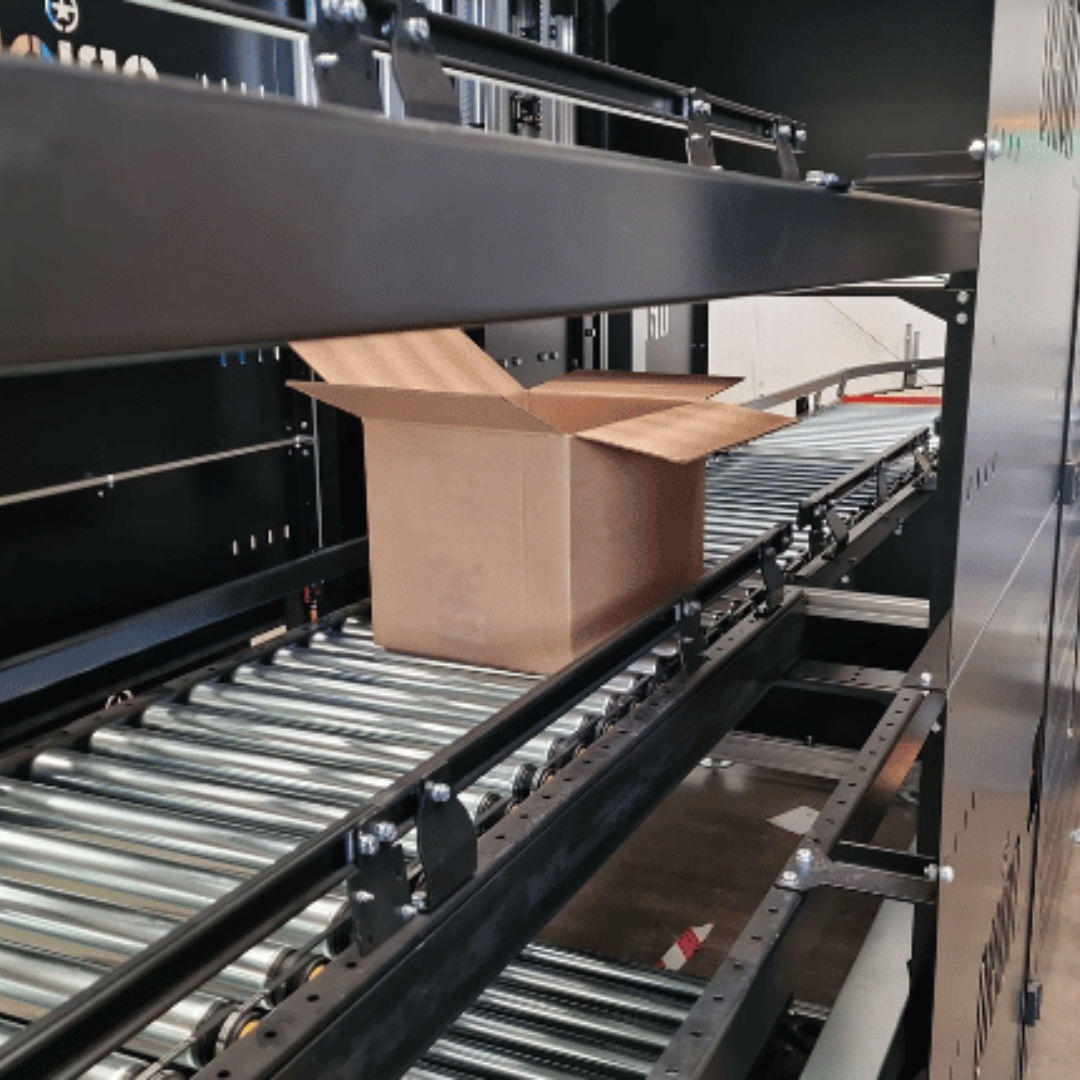In the fast-paced world of food processing, efficiency, speed, and hygiene are key factors that determine the success of production lines. As consumer demands grow for faster delivery times and higher-quality products, food manufacturers are turning to advanced technologies to streamline operations. One such innovation that is transforming food production is the powered roller conveyor system.
These conveyors are not only enhancing efficiency but also playing a critical role in maintaining the highest hygiene standards, a vital aspect of food production. Let’s explore how powered roller conveyors are revolutionizing the food processing industry.
What are Powered Roller Conveyors?
Powered roller conveyors consist of a series of rollers mounted on a frame, with a motorized drive system that powers the rollers, enabling the movement of goods along the conveyor. The rollers are often made from durable materials such as stainless steel or food-grade plastic, ensuring longevity and resistance to wear and tear. This system can be customized to accommodate different product types, sizes, and weights, making it suitable for various stages in food processing, from raw material handling to finished product packaging.
1. Boosting Operational Efficiency
One of the key advantages of powered roller conveyors in food processing is the improvement in operational efficiency. These systems are designed to automatically transport products from one station to another, eliminating the need for manual labor. This reduces human error, minimizes delays, and ensures that the production line operates smoothly.
In food processing facilities, powered roller conveyors are especially useful for handling bulk products such as fruits, vegetables, packaged items, or meat products. Since these conveyors can be integrated with automated sorting, weighing, and packing systems, they significantly reduce downtime and improve throughput. Whether it's moving raw ingredients or finished products, these conveyors keep everything moving with minimal disruption, leading to faster production times and increased overall output.
2. Hygiene and Food Safety: A Priority
Food safety is a top priority for any food manufacturer. Powered roller conveyors are designed with hygiene in mind. They are often made from stainless steel or other non-corrosive, easy-to-clean materials that prevent the accumulation of contaminants. Since these conveyors are integral to the transportation of food items, maintaining cleanliness is critical to avoid contamination.
The design of powered roller conveyors makes it easier to clean between production runs. Unlike traditional conveyor systems, which may trap food particles in hard-to-reach places, powered roller conveyors have a streamlined construction with fewer joints, seams, and crevices, reducing the risk of bacterial build-up. Moreover, many systems are equipped with smooth, non-porous surfaces that resist the accumulation of dirt and grime, which is especially important in food handling.
3. Temperature Control and Compliance
Certain food products require precise temperature control during processing. Powered roller conveyors can be customized to include features that regulate the temperature of the rollers, ensuring that products are kept at optimal temperatures throughout the production line. For example, refrigerated powered roller conveyors are often used in the handling of perishable food products, like dairy, meats, and frozen foods, to prevent spoilage during transportation.
Moreover, powered roller conveyors can be integrated with sensors that monitor temperature, humidity, and other variables, ensuring that food safety regulations are adhered to. This is essential for compliance with standards set by food safety organizations such as the FDA, USDA, and European Food Safety Authority (EFSA).
4. Space Optimization and Customization
In food processing plants, space is often limited, and maximizing available floor space is crucial. Powered roller conveyors can be customized to fit specific layouts, optimizing production areas and reducing bottlenecks. These conveyors are also modular, allowing for easy expansion or reconfiguration as production demands change.
By utilizing powered roller conveyors, food processing facilities can maintain efficient workflows even in compact spaces, ensuring smooth transitions from one stage of production to another without sacrificing valuable real estate.
5. Improved Worker Safety and Ergonomics
Another significant advantage of powered roller conveyors is their positive impact on worker safety. In food processing environments, where heavy lifting and repetitive motions are common, powered roller conveyors minimize the risk of workplace injuries. Workers no longer need to manually lift or carry heavy items from one station to the next, reducing the chances of strains, sprains, or other musculoskeletal injuries.
Additionally, by reducing the need for manual intervention, powered roller conveyors lower the chances of accidents caused by human error. The conveyor system’s automated nature allows workers to focus on other critical tasks, ensuring that the production line operates smoothly and safely.
6. Cost Efficiency in the Long Run
Although powered roller conveyors may require a higher initial investment than manual systems, their long-term benefits outweigh the upfront costs. The automation of the food production process helps reduce labor costs, while the system’s durability ensures minimal maintenance and repair expenses. Furthermore, the ability to streamline operations leads to increased production volumes and improved profitability over time.
Conclusion
Powered roller conveyors are transforming the food processing industry by enhancing operational efficiency, ensuring high levels of hygiene, and promoting worker safety. Their ability to handle large volumes of food products, while maintaining compliance with strict food safety regulations, makes them indispensable in modern production facilities. As the food industry continues to evolve, these conveyor systems will undoubtedly play a crucial role in driving innovation, quality, and efficiency, helping food manufacturers meet the growing demands of a competitive marketplace.
By adopting powered roller conveyors, food processing plants can stay ahead of the curve, ensuring that they deliver high-quality products to consumers while maintaining a safe, efficient, and hygienic environment.






